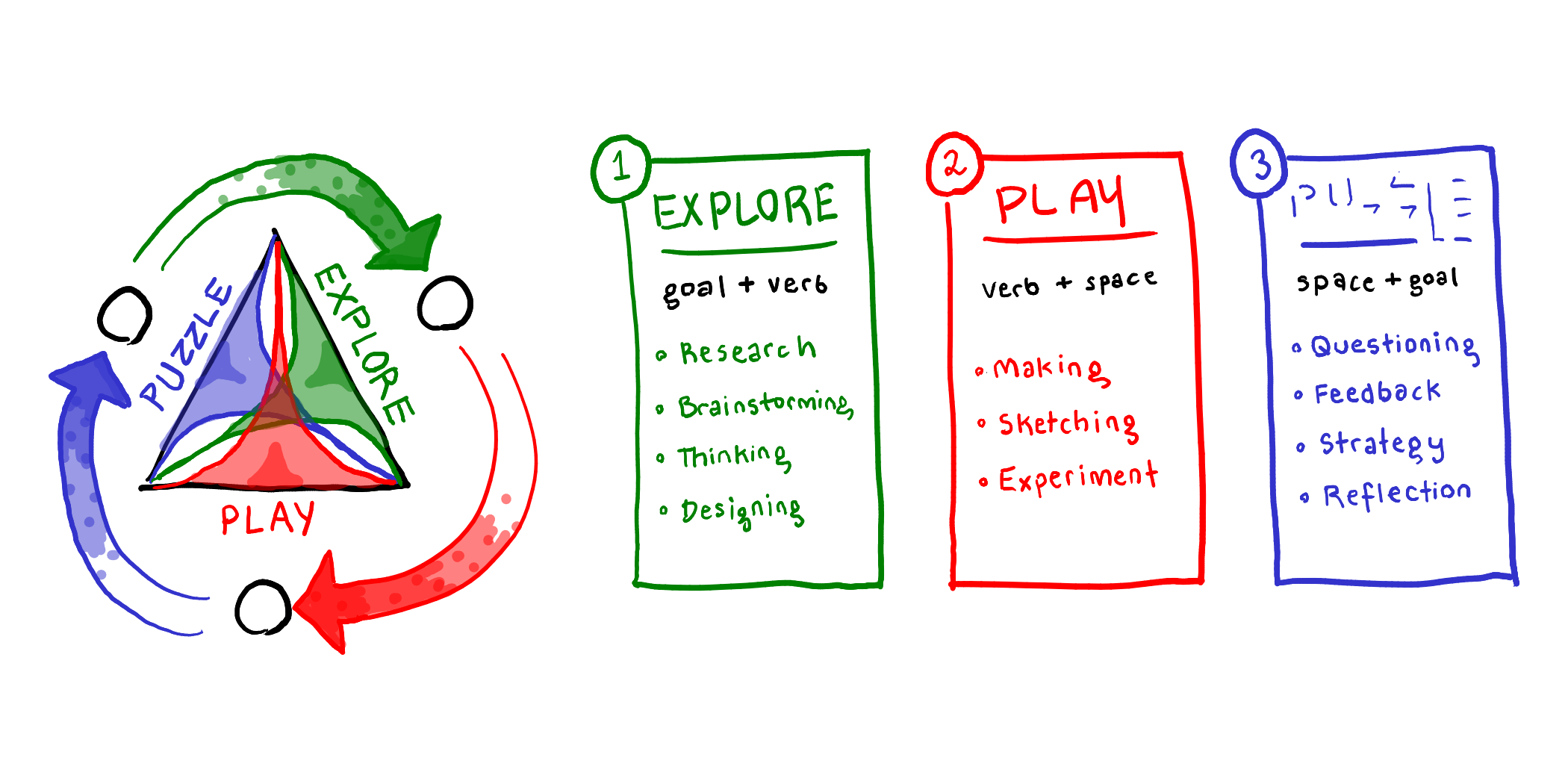Deliberate Practice for Knowledge Work is a Cycle of Engagement
Andy Matuschak writes about how Knowledge work rarely involves deliberate practice, with the core problem being that unlike athletes and musicians there is no clear path for knowledge workers to practice and improve. His solution (or rather, experiment) is largely focused on reading-retention and Evergreen note-writing as fundamental unit of knowledge work.
Simon Sarris critiques this approach to suggest that play may be one method for knowledge workers to develop ideas over time:
Play does not resemble deliberate practice because knowledge does not resemble deliberate performance. The core technique of knowledge is not a careful repetition but anti-repetition. It is found in the ambling, tinkering spirit of crafting. It is revealed to participants by having an argument for argument's sake. When Andy says “Knowledge workers usually have no specific methods for developing ideas over time”, I think making space for play is one method.
Andy's focus is on exploration: writing, memorising, researching; and Simon's focus is on play: anti-repetition, and making. These two approaches do not contradict each other, they are but two sides of a triangle strengthening each other as part of a whole. From this I propose the third side of the triangle according to my Three approaches to engagement would be puzzle.

This Cycle of Engagement is rather simple... [write more]
For myself, exploration takes place within note-taking, cutting and pasting on paper, writing, researching; then play involves different levels: micro-creation which lately involves sketching some of the ideas from my exploration phase, or larger experiments, programming projects; and then puzzle lately involves tweeting or sharing thoughts with friends to get feedback.
This same Cycle of Engagement can be applied to just about any creative endeavour or engaging experience. It even draws parallels with how we experience and learn about the world: gathering information to build a mental model of the world, experimenting with pushing the boundaries of this mental model, and then reflecting and updating this model.